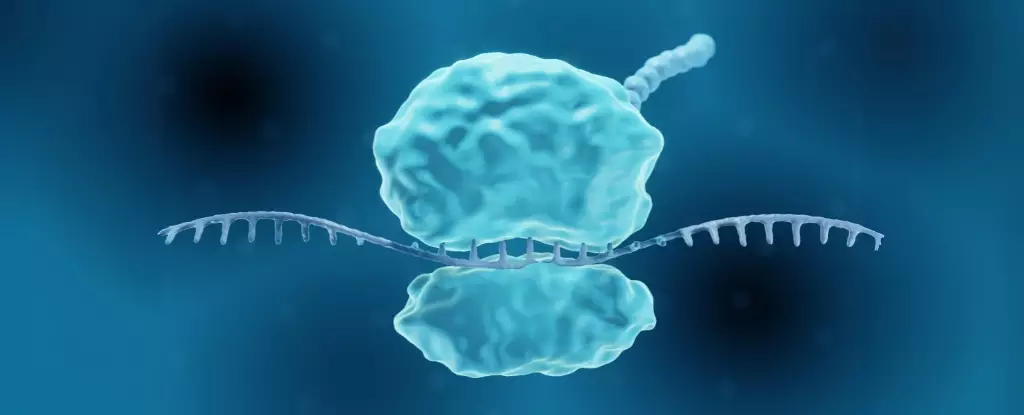In a world constantly threatened by emerging viruses, a groundbreaking scientific discovery offers a glimmer of hope—but with substantial caveats. Researchers have identified a rare genetic mutation that confers near-complete immunity to a broad spectrum of viruses, presenting an exciting avenue for future therapies. This mutation, involving a deficiency in the interferon-stimulated gene 15 (ISG15), leads to a state of persistent, yet mild, inflammation that paradoxically bolsters the immune system’s ability to fend off pathogens. By studying individuals carrying this mutation, scientists have uncovered insights into how the body’s innate defenses can be turned into a powerful shield against viral onslaughts.
What makes this discovery particularly remarkable is the ability to replicate this antiviral effect artificially. Using advanced mRNA-like technologies, researchers have demonstrated that temporarily inducing a similar state in lab animals enhances their resistance to viruses, including formidable foes like SARS-CoV-2. This approach does not rely on targeting specific viruses but instead activates a general antiviral mechanism, potentially offering rapid, broad-spectrum protection. While the benefits seem promising, it is essential to recognize that these experiments are still in their infancy, and the path toward safe human application is fraught with technical and ethical challenges.
The Promise of a Universal Shield
The potential application of this research suggests a paradigm shift in our approach to infectious disease management. Unlike traditional vaccines, which require precise identification and targeting of individual viruses, this therapy could serve as a preemptive, short-term barrier against any viral presence. Imagine frontline healthcare workers or vulnerable populations receiving a temporary boost to their immune defenses during outbreaks, bridging the critical gap until specific vaccines are developed. Such a method could revolutionize pandemic preparedness, offering a flexible, rapid response tool that is not constrained by the lag time associated with traditional vaccine development.
Moreover, this strategy addresses core flaws of existing immunization efforts. It sidesteps the need for prior exposure or immunity and can be administered in the early stages of an outbreak, buying invaluable time during crises. There is a compelling argument that, in a post-pandemic world increasingly aware of global interconnectivity, investing in broad-spectrum immunotherapies might become a necessary complement to existing vaccines.
The Ethical and Practical Hurdles
Despite its dazzling promise, this breakthrough is shadowed by significant hurdles that cannot be underestimated. Fundamental questions about safety and long-term effects persist. In individuals with the natural ISG15 deficiency, the persistent inflammation slightly damages tissues over time. Mimicking this in healthy individuals—even temporarily—risks tipping the balance toward harmful inflammation, autoimmunity, or other unforeseen responses. The fleeting nature of the current technology, lasting merely a few days, could limit utility, and extending this window safely remains an open challenge.
Furthermore, the delivery of such therapies to specific tissues or cells in humans remains an unresolved obstacle. Current delivery methods that work in animal models—such as mRNA-based instructions—must be refined for human physiology and diverse populations. Beyond the technical issues, societal resistance rooted in the broader debate over mRNA technologies complicates the path forward. Distrust fueled by misinformation and political opposition could hinder funding, approval, and public acceptance.
More troubling is the risk of misuse or unintended consequences. If not carefully monitored, manipulating the immune system—even temporarily—may trigger auto-inflammatory disorders or other immune dysregulation. In a climate of growing skepticism about biotech advancements, encouraging public and political support for such radical therapies might be an uphill battle.
A Center-Left Perspective: Balancing Innovation and Caution
From a center-leaning liberal stance, this discovery beckons a cautious optimism. Innovation in medical science is vital in safeguarding populations against unpredictable viruses; however, safeguarding individual rights, ethical standards, and equitable access must remain central. Fair distribution of such therapies should be prioritized to prevent deepening existing health disparities. Moreover, rigorous testing and transparent communication are essential to ensure public trust, especially given the politicized climate surrounding vaccine and biotech debates.
While the promise of a near-universal, short-term immune boost is tantalizing, policymakers and scientists must heed the lessons of past overhyped promises and rushed approvals that resulted in setbacks or public harm. Balancing scientific boldness with ethical responsibility will be the true test of whether this breakthrough can be turned into a safe, effective, and widely accessible tool against future pandemics. Only through prudent steps, thoughtful regulation, and unwavering commitment to public well-being can the potential of this scientific marvel be realized without succumbing to hubris or neglect.


Leave a Reply